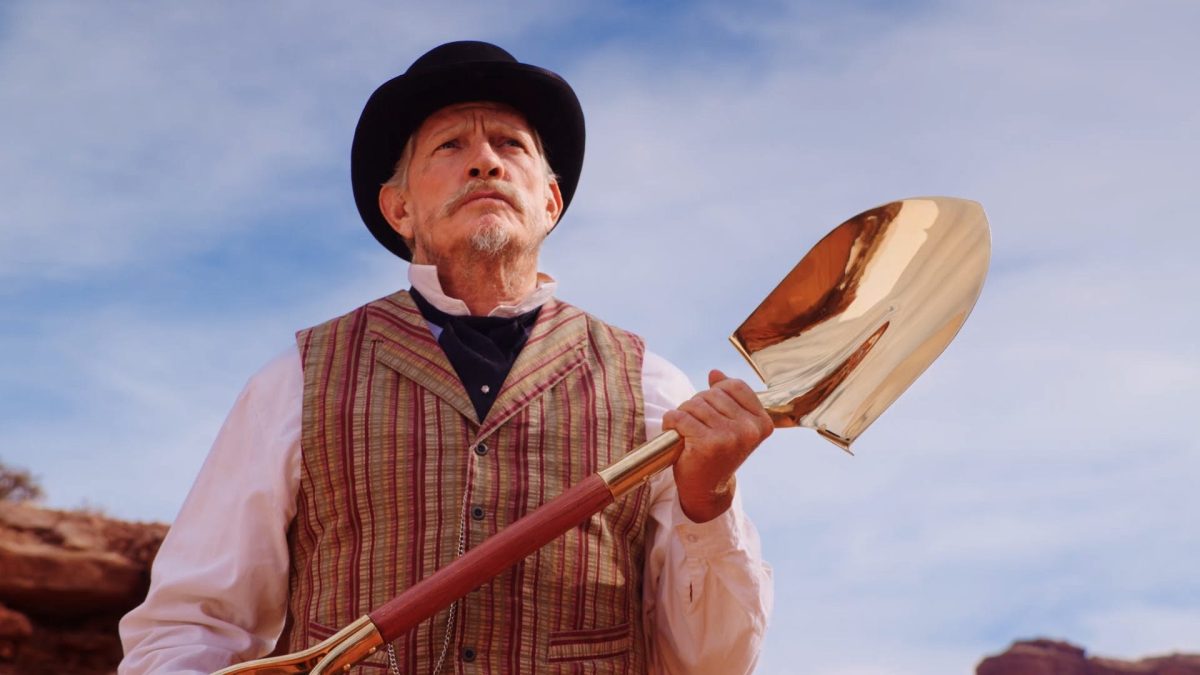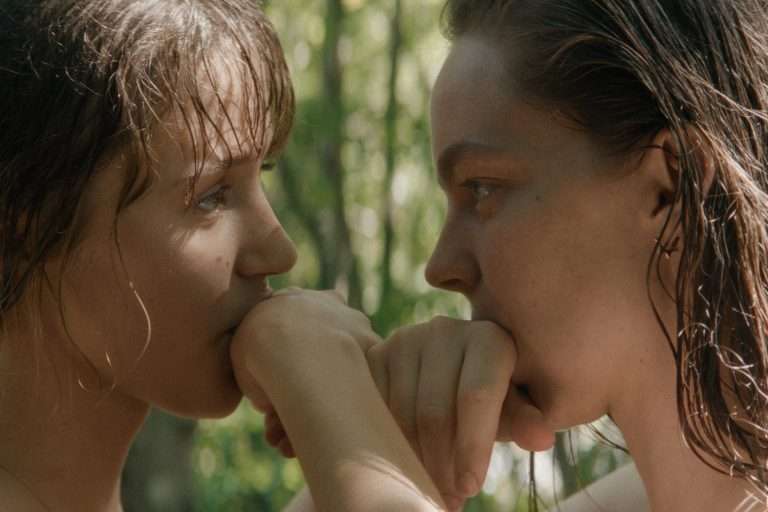“Legend of the Happy Worker” (2025) is one of David Lynch’s final projects, and it makes sense why he would be fascinated by its setup. The film, executive-produced by Lynch, takes place in a desert and almost looks like one of the golden-age Westerns. Yet, there’s something strikingly odd about the experience that you can’t put your finger on right away.
The drama is operatic, even a few notches above the theatricality in your usual standard of westerns. Still, you sense that there’s something more to it than its vibrant and cheerful drama on the surface. It feels like everyone is performing for an audience, as the characters did in Lars Von Trier’s “Dogville.” It also feels like a microcosm of the world at large.
Gradually, “The Happy Worker” unpeels its didactic layers about power, greed, and control. That’s when it feels like a genuine fable set in a utopian world. It’s the kind of project where the overall mood should let you in on the film’s secrets. That has usually been the case with David Lynch’s work. Take “Twin Peaks” as an example. It’s a mystery thriller about a young woman’s disappearance from a small town. It takes place in an elevated reality that may seem daily soapic, at least at first glance. Yet, that’s part of the show’s surreal charm. It’s only when you get sucked into its unusual mood that you can find it rewarding.
“Legend of the Happy Worker” tries to do something similar with its mood and the setting, but it’s a shame that the result ends up being a patchy attempt at building a Western fairy tale. The film comes from filmmaker Duwayne Dunham, who has edited Lynch’s “Twin Peaks” and “Wild at Heart.” Both projects are realized in a way where style allows you to understand the substance, and not the other way around. As a co-writer and director, Dunham attempts to bring to life a story that Lynch is said to have been interested in pursuing in the past.
Sadly, the final product looks and sounds quite outdated. Still, the problem isn’t just that the film feels like it belongs to a bygone era, but its aesthetic approach isn’t properly utilized, as it may have happened if it were directed by Lynch himself.
Speaking about its substance, the film mainly tracks Joe (Josh Whitehouse), who is likely meant to represent ‘just another Joe’. He is a common man, trying to do well in his life by the power of virtue and kindness. Joe lives with his wife, Joanne (Meagan Holder), and their young son in a house that feels like it’s made out of cardboard. That may not be the intention, but it still adds to the film’s overall elevated presentation.

The film operates like a representational piece of art. It is largely about Joe hoping to rise in the ranks by being like his boss, Goose (Thomas Haden Church). Goose is a seemingly noble man who struck gold one time he dug somewhere, and then kept digging. He hired other people to keep digging and provided them with employment.
Apart from him, there’s another man who also influences Joe’s life significantly throughout this movie. It’s his uncle Clete (Colm Meaney), who hopes to use the resources available at the site where Goose has employed several people. Clete has a certain fondness toward Miss Smithers (Amy Shiels), who appears as his match in the qualities he holds.
Besides them, there are diggers and there are stone pickers. There’s also a horse. It’s hard not to see the intentions of naming them in this way. By using them often as plot devices, the film leans more into a charming, idealistic zone that was a major part of American cinema until only a few years ago. It also sounds significantly more musical than the conventional Westerns. Unlike them, this one doesn’t depict lawlessness as an unshakable part of their lives. Instead, it’s much more hopeful, and the diggers are ambitious and hard-working. It’s pretty evident where this tale about workers will lead by the end. So, yes. It is quite predictable.
Despite those issues, the film could have been a fascinating stylistic experiment at the least, to analyze society as a whole, especially in regards to the rampant industrialization, which is driven by greed instead of serving as a means of providing meaningful opportunities. Even the title gives away plenty about where it’s leaning, ideologically. Sadly, it doesn’t translate too well and ends up feeling like an incohesive misfire.








